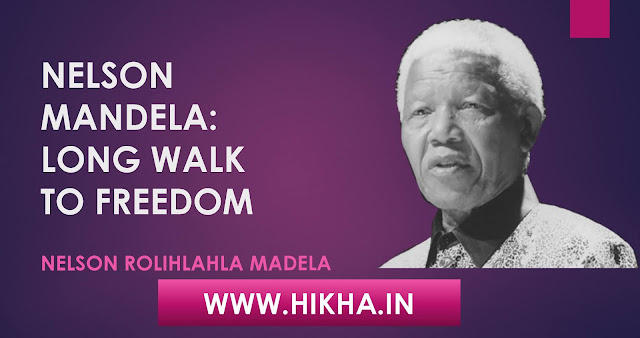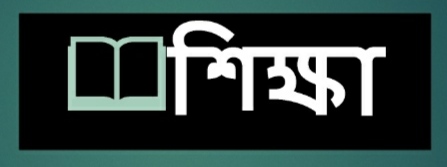NELSON MANDELA: Long Walk To Freedom
 |
| NELSON MANDELA: Long Walk To Freedom (www.hikha.in) |
TEXTUAL AND ADDITIONAL Q&A
Q1. What is the full name
of Nelson Mandela?
Or
Who is the author of “Nelson
Mandela: Long Walk to Freedom”?
Ans: Nelson
Rolihlahla Mandela.
Q2.What is apartheid?
Ans: Apartheid is a
political system that separates people according to their race.
Q3.Where did the
ceremonies take place?
Ans: The ceremony
took place in the lovely sandstone amphitheatre formed by the Union Buildings
in Pretoria.
Q4.Can you say how 10th
May is an ‘autumn day’ in South Africa?
Ans: the 10th
May is called an ‘autumn day’ in South Africa. Because on that day, there was
the largest gathering ever of international leaders on South African soil for
the installation of South Africa’s first democratic, non-racial government.
Q5. Why does Mandela thank
the international leaders for?
Ans: Finally Mandela
and his people got the privilege to be host to the nations of the world on
their soil. So, Mandela thanks all the distinguished international leaders for
having come to take possession with the people of his country for the purpose
of common victory, for justice, for peace and for human dignity.
Q6.What ideals does
Mandela set out for the future of South Africa?
Ans: Mandela always
thought good for the future of South Africa. So, he pledged to liberate all his
people from the continuing bondage of poverty, deprivation, sufferings, gender
and other discrimination. He also stressed that the beautiful land of South Africa
would never again experience the oppression of one by another. These ideals he
set out for the future of South Africa.
Q7.What do the military
generals do? How has their attitude changed and why?
Ans: The highest
military generals of the South African defense force and the police saluted
Nelson Mandela and pledged their loyalty. But Mandela was not unmindful of the
fact that not so many years before the same force would not have saluted him
but arrested.
Their
attitude changed due to the fact that a new non-racial government was elected
in South Africa where Mandela was elected as the president of South Africa.
Q8.Why were two national
anthems sung?
Ans: On the day of the
inauguration, Mandela was attracted by two national anthems, one was sung by
the blacks and another was sung by whites. The singing of the two national
anthems symbolized the equality of blacks and whites.
Q9.How does Mandela
describe the system of government in his country (i)in the first decade and
(ii)in the final decade, of twentieth century?
Ans: Mandela
describes the system of government in his country in the first decade and the
final decade of the twentieth century. As he described in the first decade of
twentieth century, the white skinned people of South Africa patched up their
differences and erected a system of racial domination against the dark skinned
people of their own country which created the basis of one of the harshest, most
inhumane societies, the world has ever known.
But in the final decade of
the twentieth century and his own eight decade as a man, the domination of the
whites on the blacks had been over turned forever and replaced by one that
recognized the rights and freedoms of all peoples, regardless of the colour of
their skin.
Q10. What does courage
mean to Mandela?
Ans: Mandela learnt
the meaning of courage from his comrades. As he learnt, courage wasn’t the
absence of fear, but the triumph over it. The brave isn’t he who doesn’t feel
afraid, but he who conquers that fear.
Q11.Which does Mandela
think is natural, to love or to hate?
Ans: No man is born
hating another person because of the colour of his skin or his background or
his religion. People must learn to hate and if they can learn to hate, they can
be taught to love also. But according to Mandela love comes more naturally to
the human hearts than its opposite.
Q12.What ‘twin
obligations’ does Mandela mention?
Ans: Mandela
mentions that everyman has twin obligations in his life. Firstly, a man has
obligations to his family, to his parents, to his wife and children. Secondly,
he has an obligation to his people, his community and his country.
Q13.Does Mandela think the
oppressor is free? Why/Why not?
Ans: Mandela doesn’t
think the oppressor is free. Because according to Mandela, an oppressor who
takes away another man’s freedom is a prisoner of hatred. He is looked behind
the bars of prejudice and narrowmindness. The oppressed and the oppressor alike
are robbed of their humanity.
Q14.What was the
inauguration for?
Ans: The
inauguration was to welcome dignitaries and world leaders who were present in
South African soil for the installation of South Africa’s first democratic,
non-racial government.
Q15.Who was sworn as first
deputy president?
Ans: Thabo Mbeki.
Q16.Who was sworn as
second deputy president?
Ans: Mr. de Klerk.
Q17. Who accompanied the
narrator in the inauguration?
Ans: Nelson
Mandela’s daughter Zenani accompanied the narrator, Nelson Mandela.
Q18. Write about the
display of South African jets/ helicopters and troop carriers that took place
in this occasion?
Ans: in this
occasion, the South African jets and troops carriers roared in perfect
formation over the Union Buildings in Pretoria.
Q19.What would the highest
military generals have done to the author earlier?
Ans: The highest
military generals of the South African defense force and the police would not
have saluted Mandela earlier, but arrested.
Q20.What were the name of
the two national anthems of South Africa?
Ans: On the day of
the inauguration, Mandela was attracted by two national anthems, one by blacks
and another by whites. The black sang ‘Die Stem…’, and whites sang ‘ Nkosi
Sikelel –iAfrica’.
Q21.What had happened
after ‘Anglo-Boer War’?
Ans: After
Anglo-Boer War, the white skinned people of South Africa patched up their
differences and erected a system of racial domination against the dark skinned
people of their own land.
Q22.What is the new system
of government?
Ans: In the new
system of government, the domination of the whites on the blacks had been over
turned forever and replaced by one that recognized the rights and freedoms of
all peoples, regardless of the colour of their skin.
Q23. When was the
democratic election held in South Africa?
Ans: 1994.
Q24. Who were the leaders
present there?
Ans: The
leaders who were present there were the
international leaders.
Q25. Why did the
international leaders gather in South Africa on 10th May, 1994?
Ans: The
international leaders gathered in South Africa on 10th May,
1994 for the installation of South
Africa’s first democratic, non-racial government.
Q26. Who roared in perfect
formation over the Union Buildings?
Ans: South African
jets, helicopters and troop carriers roared in perfect formation over the Union
Buildings in Pretoria.
Q27. What were the colours
emitted by a chevron of Impala jets?
Ans: The colours
emitted by a chevron of Impala jets were black, red, green, blue and gold of
the South African new flag.
Q28. What did the smoke
trail of Impala jets symbolize?
Ans: The smoke
trailed of Impala jets symbolized the new South African flag.
Q29. What happened in the
first decade of twentieth century?
Ans: In the first
decade of twentieth century, the white skinned people of South Africa patched
up their differences and erected a system of racial domination against the dark
skinned people of their own land.
Q30.Who formed the
structure of one of the harshest and most inhumane societies?
Ans: The white
skinned people formed the structure of one of the harshest and most inhumane
societies.
Q31.What created a deep
and lasting wound in South African?
Ans: the policy of
‘apartheid’ created a deep and lasting wound in South African.
Q32.What is the name of
the party joined by Nelson Mandela?
Ans: African National
Congress.
Q33. How many seats won by
the party of Mandela?
Ans: 252 seats out
of 400.
Q34. When was Mandela die?
Ans: On 5th
December, 2013.
Q35. How many years did
Mandela spend in prison?
Ans: Thirty years.
Q36. Why did such a number
of international leaders attend in the inauguration? What did it signify the
triumph of?
Ans: On the day of
the inauguration, a large numbers of international leaders attended in the soil
of South Africa to pay their respects to the new democratic, non-racial
government. It signified the victory of human freedoms and democracy. It also
signified the importance of political independence.
Q38. How did Mandela’s
understanding of freedom change with age and experience?
Ans: Mandela’s
understanding of freedom changed with age and experience. During his boyhood
days, he learnt that freedom was an illusion. As a youth, he realized that his
freedom had been taken away from him. With the advancement of the age
experience, Mandela felt that not only his freedom but also the freedom of
everybody was curtailed. So to have freedom for all, he joined African National
Congress.
Q39.How did Mandela’s
hunger for freedom change his life?
Ans: Mandela’s
hunger for freedom changed him into a great man, a states man and a visionary.
He worked day and night for freedom. Mandela had to face physical and mental
tortures for obtaining freedom for his own people.
Q40.How did Mandela
opine/comment about his people?
Ans: Nelson Mandela
has high opinion about the people of South Africa. According to him, the people
of his country are the greatest wealth. They are finer and truer than the
purest diamond. They create deep height of character.
Q41. What did Mandela
discover as a youth?
Ans: As a youth,
Mandela discovered that his freedom had been taken away from him.
Q42. Why does Mandela
address the freedom as ‘new born liberty’?
Ans: The people had
to face a terrible disaster of racial discrimination earlier. This disaster
lasted for a long time and look many life. Now the people of South Africa are
free from all such things. So, Mandela calls this liberty as a new born
liberty.
Q43. What did being free
meant by Mandela?
Ans: According to
Mandela being free meant to be free in every way that he could know. Free to
run in the fields near his mother’s hut,
free to swim in the clear stream that ran through his village, free to roast
mealies under the stars and ride the broad back of slow-moving bull.
Visit www.hikha.in Regularly for Latest Updates
|
LESSONS(FIRST FLIGHT)
|
CLICK HERE FOR NOTES |
|
A LETTER TO GOD
|
|
|
NELSON MANDELA:LONG WALK TO FREEDOM |
|
|
A TIGER IN THE ZOO
|
|
|
MADAM RIDES THE BUS
|
|
|
ANIMALS
|
|
|
GLIMPSE OF INDIA: COORG
|
|
|
GLIMPSE OF INDIA: TEA FROM ASSAM |
|
|
THE TALE OF CUSTARD THE DRAGON |
|
|
FOG
|
|
|
AMANDA
|

How many time the rain had drops on the paddy field of lencho?
ReplyDelete....for an hour
DeletePost a Comment